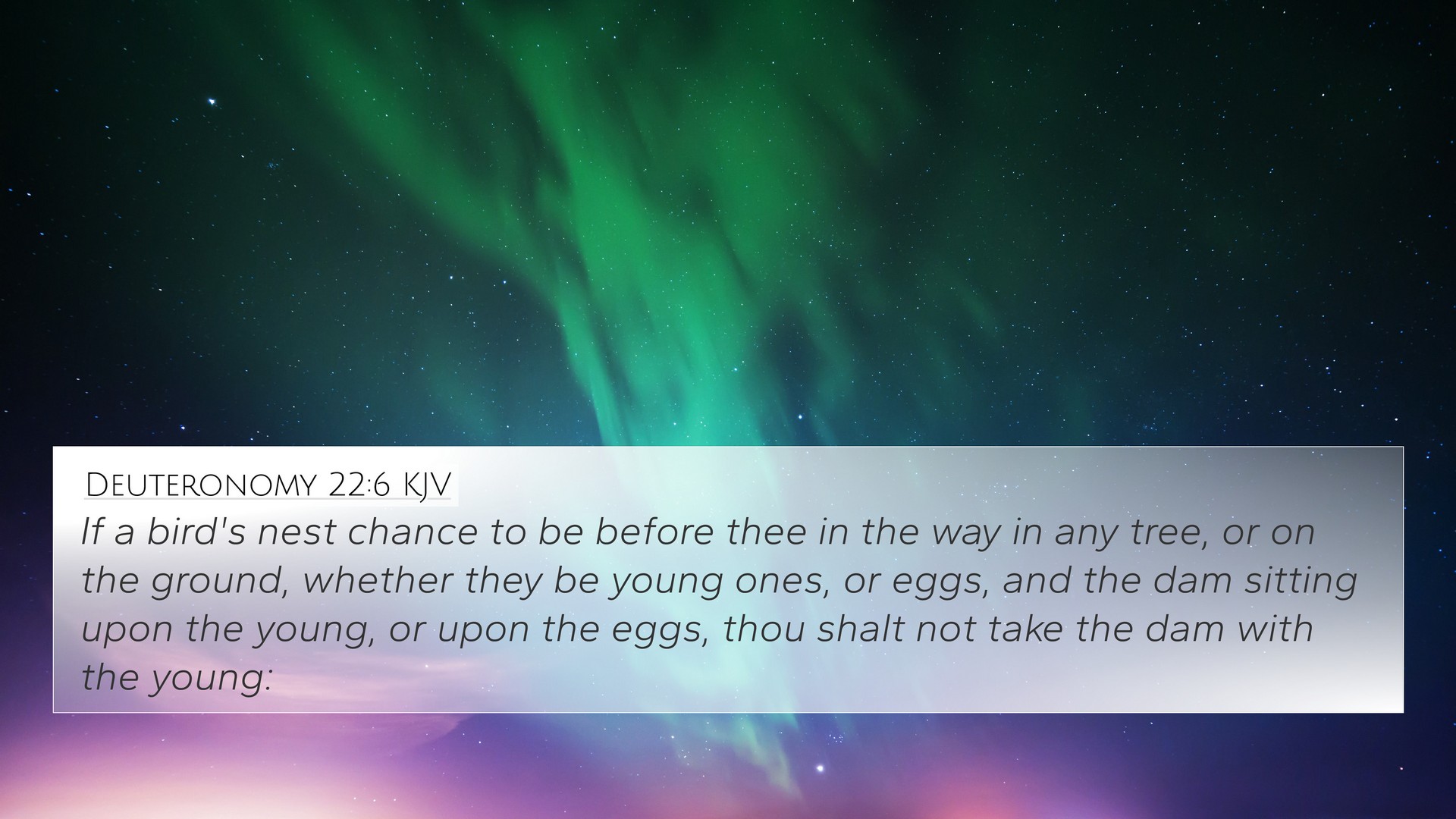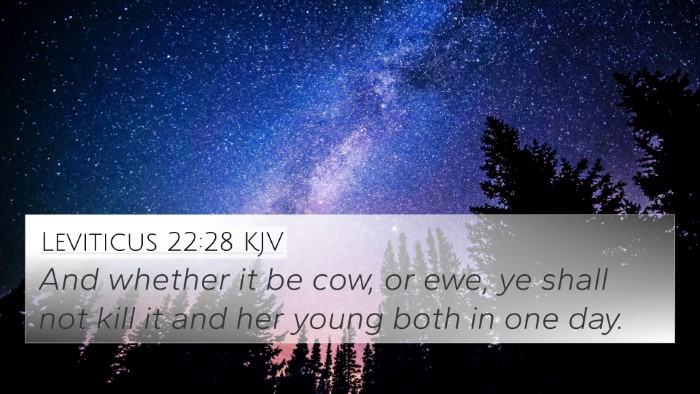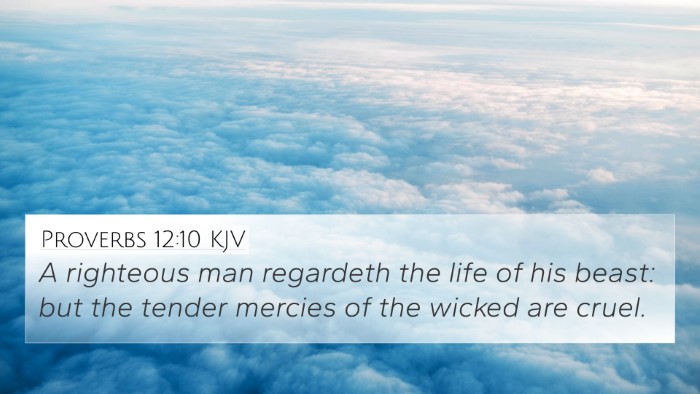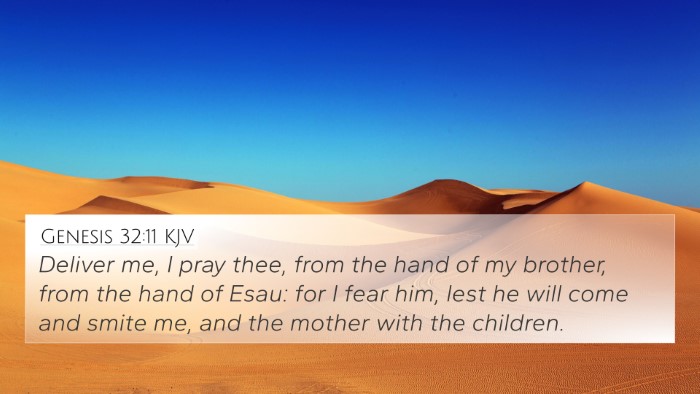Understanding Deuteronomy 22:6
Deuteronomy 22:6 states: "If you come across a bird's nest along the road, either in a tree or on the ground, and the mother is sitting on the young or on the eggs, do not take the mother with the young." This verse presents a profound ethical principle rooted in kindness and respect for life.
Meaning and Interpretation
This verse serves as a reminder of the importance of compassion in all aspects of creation. It emphasizes that even in seemingly trivial matters, like an encounter with a bird's nest, we ought to demonstrate sensitivity and moral integrity.
Key Insights from Commentaries
- Matthew Henry: Highlights the value of life, suggesting that the prohibition against taking the mother with the young underscores a divine mandate for preserving family structures even among animals.
- Adam Clarke: Notes that this law engages the heart in ethical behavior, promoting a humane attitude towards all creatures. It signifies that God's laws are not just ceremonial but also deeply moral.
- Albert Barnes: Emphasizes the connection between proper treatment of animals and the ethical obligations of humanity, showcasing that caring for creation reflects true piety and obedience to God.
Bible Verse Cross-References
To find a deeper understanding of this verse, consider the following Bible verse cross-references that relate to similar themes of compassion, care for creation, and moral conduct:
- Exodus 23:19: “You must not cook a young goat in its mother’s milk.” – Illustrates the principle of not exploiting the creatures in their own context.
- Proverbs 12:10: “A righteous man cares for the needs of his animal.” – Reinforces the ethical treatment of animals.
- Matthew 10:29: “Are not two sparrows sold for a penny? Yet not one of them will fall to the ground outside your Father’s care.” – Highlights God’s concern for all living beings.
- 1 Timothy 5:8: “Anyone who does not provide for their relatives, and especially for their own household, has denied the faith and is worse than an unbeliever.” – Connects the duty of care to familial responsibilities
- Luke 12:6: “Are not five sparrows sold for two pennies? Yet not one of them is forgotten by God.” – Emphasizes the value of life from God’s perspective.
- Job 38:41: “Who provides food for the raven when its young cry out to God and wander about for lack of food?” – Shows God’s provision for all His creatures.
- Genesis 9:5: “And for your lifeblood I will surely demand an accounting.” – Establishes the sanctity of life and the value of creation.
Thematic Connections and Interpretations
This verse invites a comparative Bible verse analysis as it connects various themes of stewardship, compassion, and divine law. The underlying message invites readers to reflect on their responsibilities towards God’s creation.
Understanding Connections Between Bible Verses
In studying these linked scripture references, we discover a rich tapestry of God’s concern for both humanity and the wider creation:
- Compassion: The inter-Biblical dialogue evident in verses like Proverbs 12:10 shows God’s desire for us to extend kindness to all living beings.
- Justice: Concepts of fairness in treatment and the well-being of animals are recurrent themes throughout scripture.
- Obedience: The laws provided in Deuteronomy highlight a call to explain not just our actions, but our hearts in relation to God's creation.
Tools for Bible Cross-Referencing
To carry out a thorough cross-reference Bible study on themes found in this verse, the following tools may be of assistance:
- Bible Concordance: A valuable resource to locate words and themes throughout the Bible.
- Bible Cross-Reference Guide: Offers a structured system for exploring related scriptures.
- Comprehensive Bible Cross-Reference Materials: Essential for those seeking to study the connections between verses deeply.
- Cross-Referencing Bible Study Methods: Techniques that can enhance your understanding of Biblical themes through scripture links.
Conclusion
Deuteronomy 22:6 stands as a poignant reminder of our responsibility towards creation. Through scriptural cross-referencing, believers can explore deeper moral principles and connect with God's heart for compassion and ethical conduct. By recognizing these Bible verses that relate to each other, we can enhance our understanding of divine expectations and live out our faith in the complexities of life.








